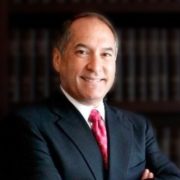Dear Atty. Gurfinkel:
Years ago, I entered the US under a different name but have been law-abiding and paying my taxes since then. My child, who was born in the US, will be celebrating his 21st birthday soon. I would like my child to petition me so I can finally get a green card.
I think my case is simple and straightforward, and I don’t think I need the assistance of an attorney. Do you think there will be any problems with my case?
Very truly yours,
E.S.
Dear E.S.:
Entering the US under a different (or assumed) name is considered “fraud” by the USCIS. If a person has committed fraud, he or she is not eligible for a green card unless he or she applies for a fraud waiver and is granted that fraud waiver. However, to apply for a fraud waiver, a person must have a parent or spouse who is a US citizen or green card holder. These relatives are considered “qualifying relatives” for purposes of applying for a fraud waiver. A child is not considered a qualifying relative for a fraud waiver.
Therefore, if you do not have a parent or a spouse who is a US citizen or an immigrant, you would not be eligible to even apply for the fraud waiver, even though you are being petitioned by a US citizen child. Therefore, if your child went ahead and filed a petition and adjustment of status, your adjustment of status would eventually be denied because you committed fraud, do not have a qualifying relative, and are ineligible to even apply for a fraud waiver.
I have come across many situations where a person committed fraud but did not have a qualifying relative to apply for a fraud waiver. They were petitioned either by a US citizen child or an employer, etc., and thought that because they already had an approved petition, there was nothing wrong in filing for adjustment of status. Imagine their shock and disappointment when their adjustment of status was denied because they were not eligible to even apply for a fraud waiver.
Even if a person has a qualifying relative, and therefore is eligible to “apply” for a fraud waiver, the person must still demonstrate “extreme hardship” on that qualifying relative for the fraud waiver to be granted. This requires extensive documentation, detailed affidavits concerning the hardship, and making sure the extreme hardship is properly presented.
That is why I advise people that even if they think their case is simple and straightforward, they should make sure, by seeking the advice of an attorney, who could evaluate their case and determine their eligibility for the benefit they seek. The person may not even know of all the traps and landmines they may encounter if they try to do it on their own. In such a case, if their case is denied, deportation defense is a lot more expensive and aggravating!
* * *
Michael J. Gurfinkel is licensed, and an active member of the State Bar of California and New York. All immigration services are provided by, or under the supervision of, an active member of the State Bar of California. Each case is different. The information contained herein including testimonials, “Success Stories,” endorsements and re-enactments) is of a general nature, and is not intended to apply to any particular case, and does not constitute a prediction, warranty, guarantee or legal advice regarding the outcome of your legal matter. No attorney-client relationship is, or shall be, established with any reader.
WEBSITE: www.gurfinkel.com
Call Toll free to schedule a consultation for anywhere in the US:
(866)—GURFINKEL
Four offices to serve you: LOS ANGELES · SAN FRANCISCO · NEW YORK · PHILIPPINES






